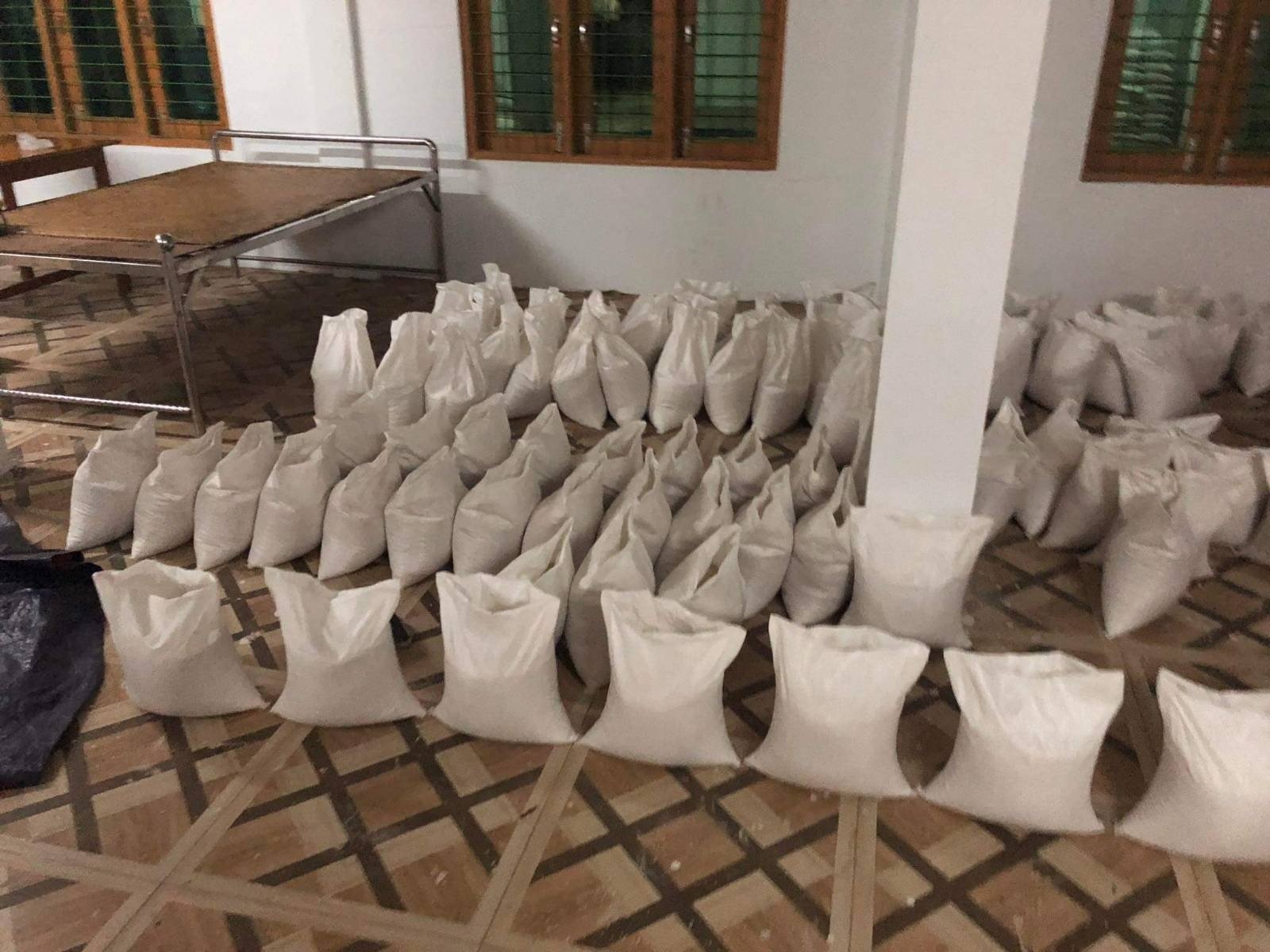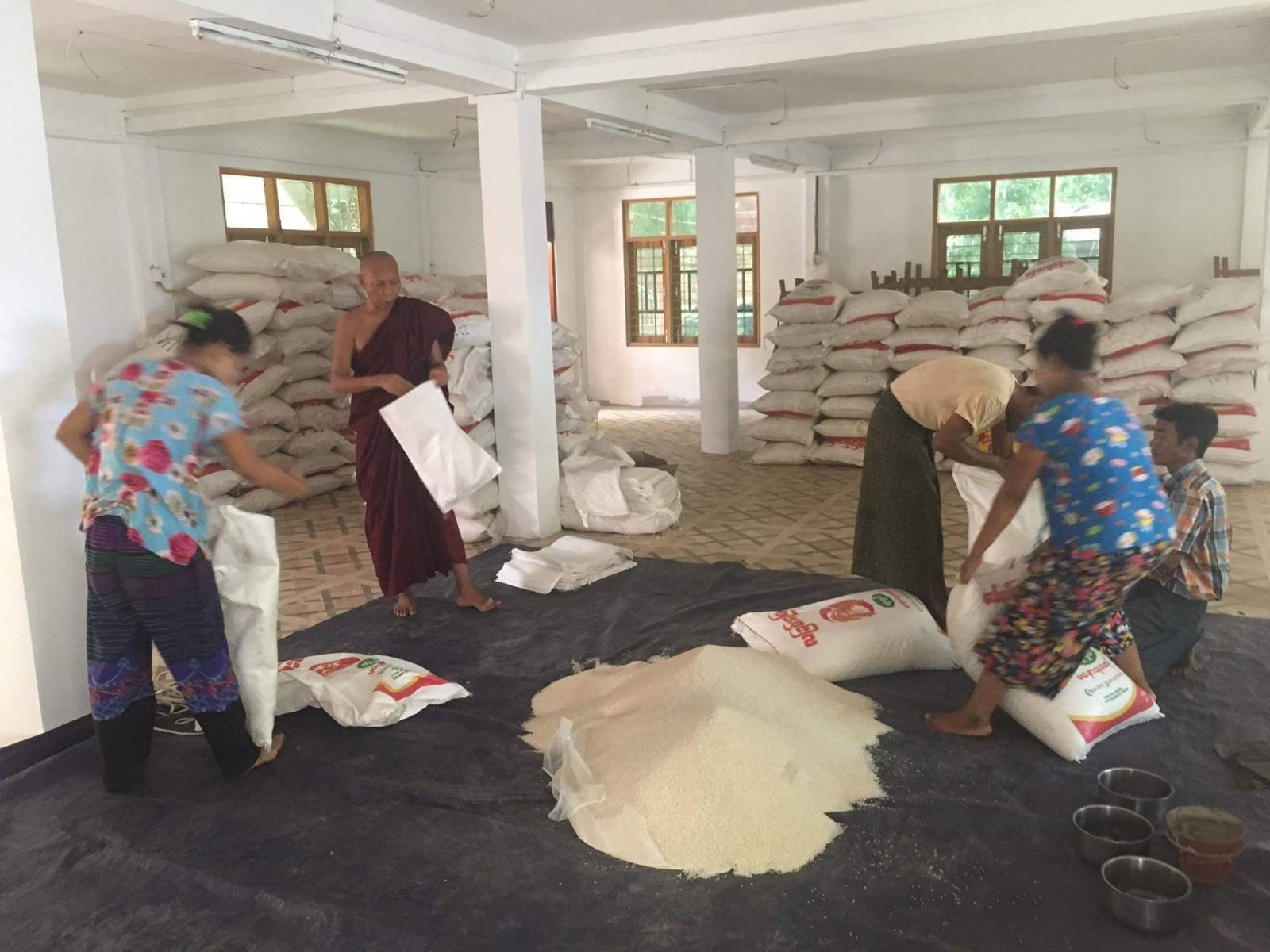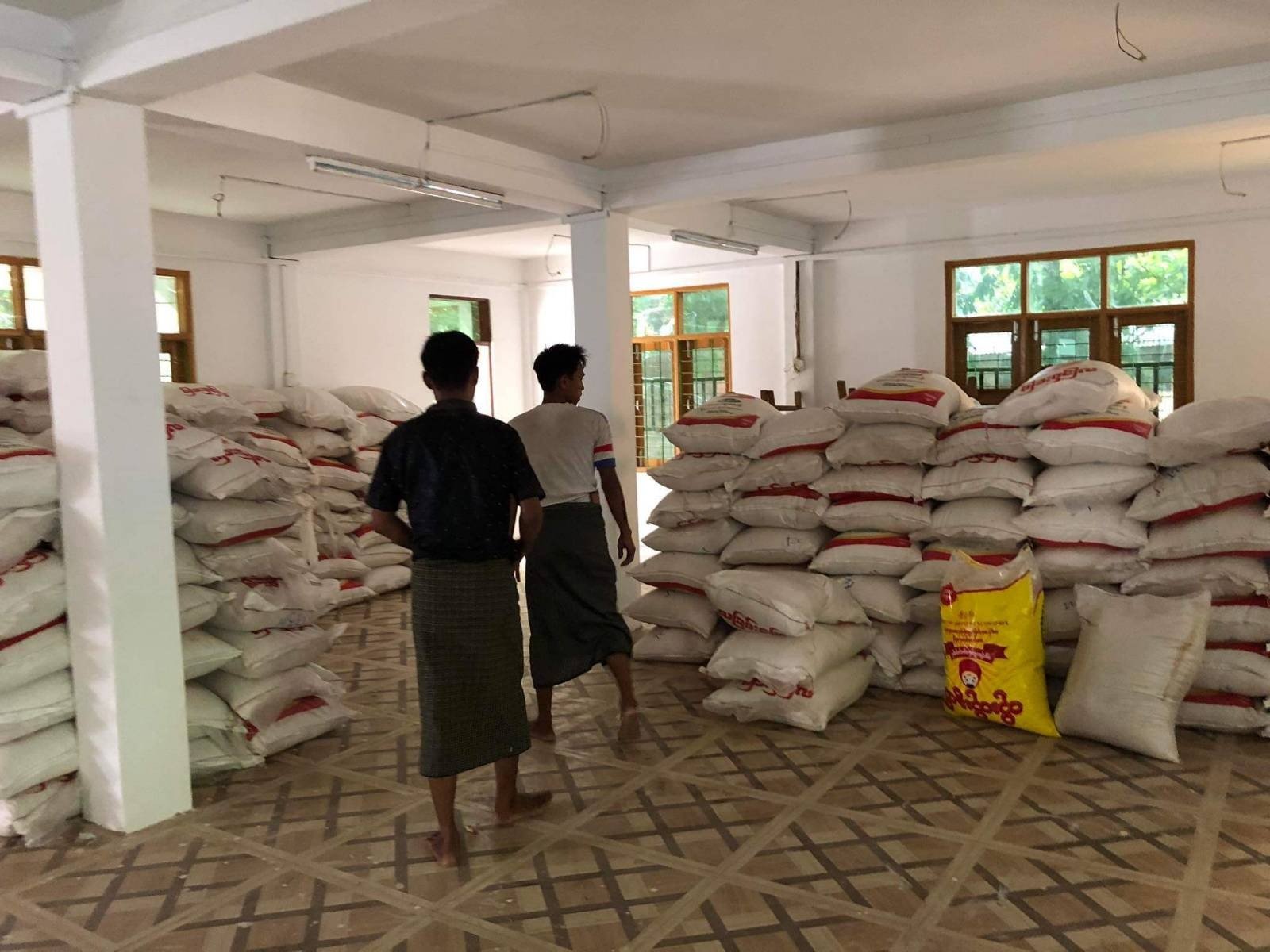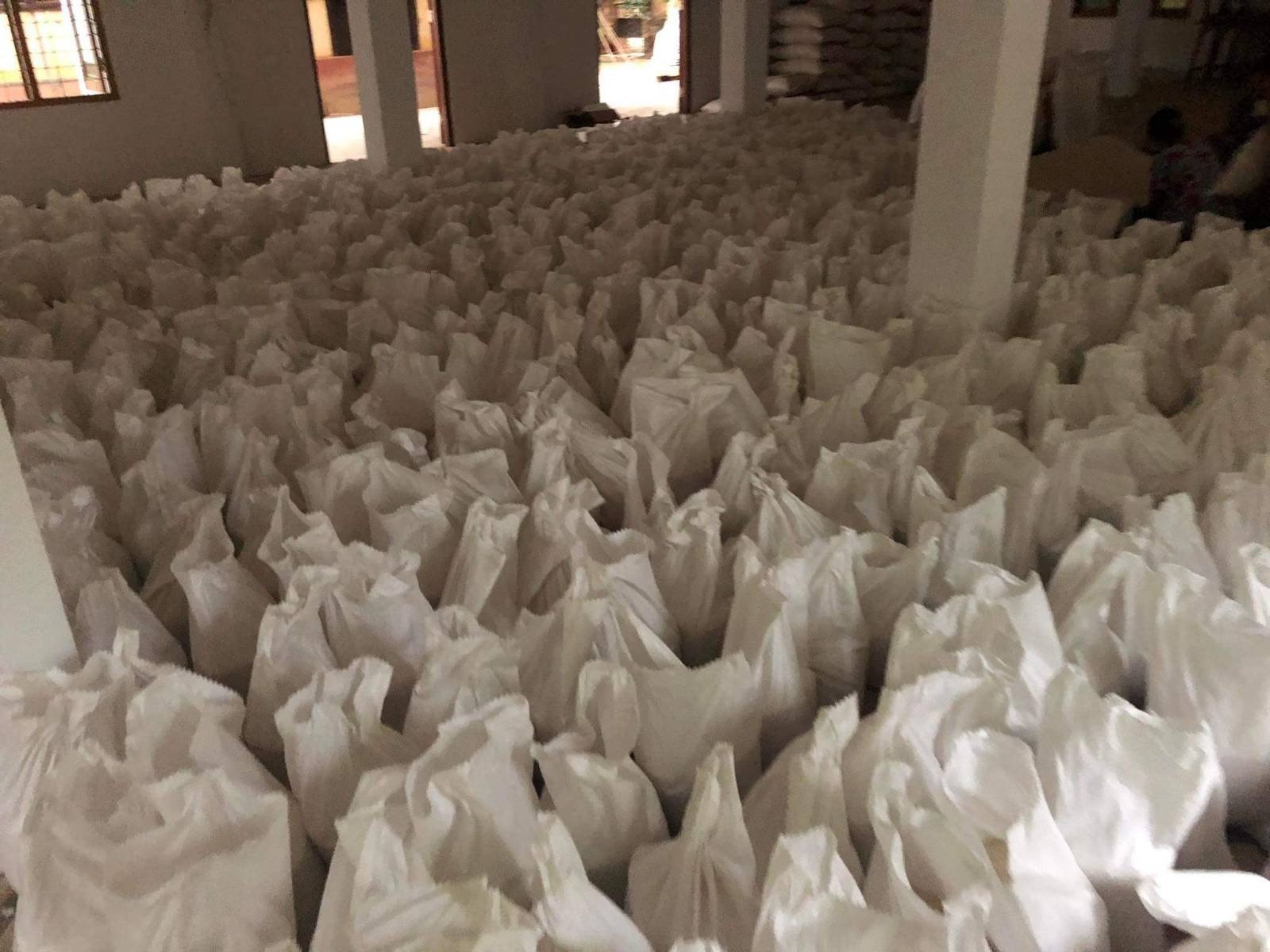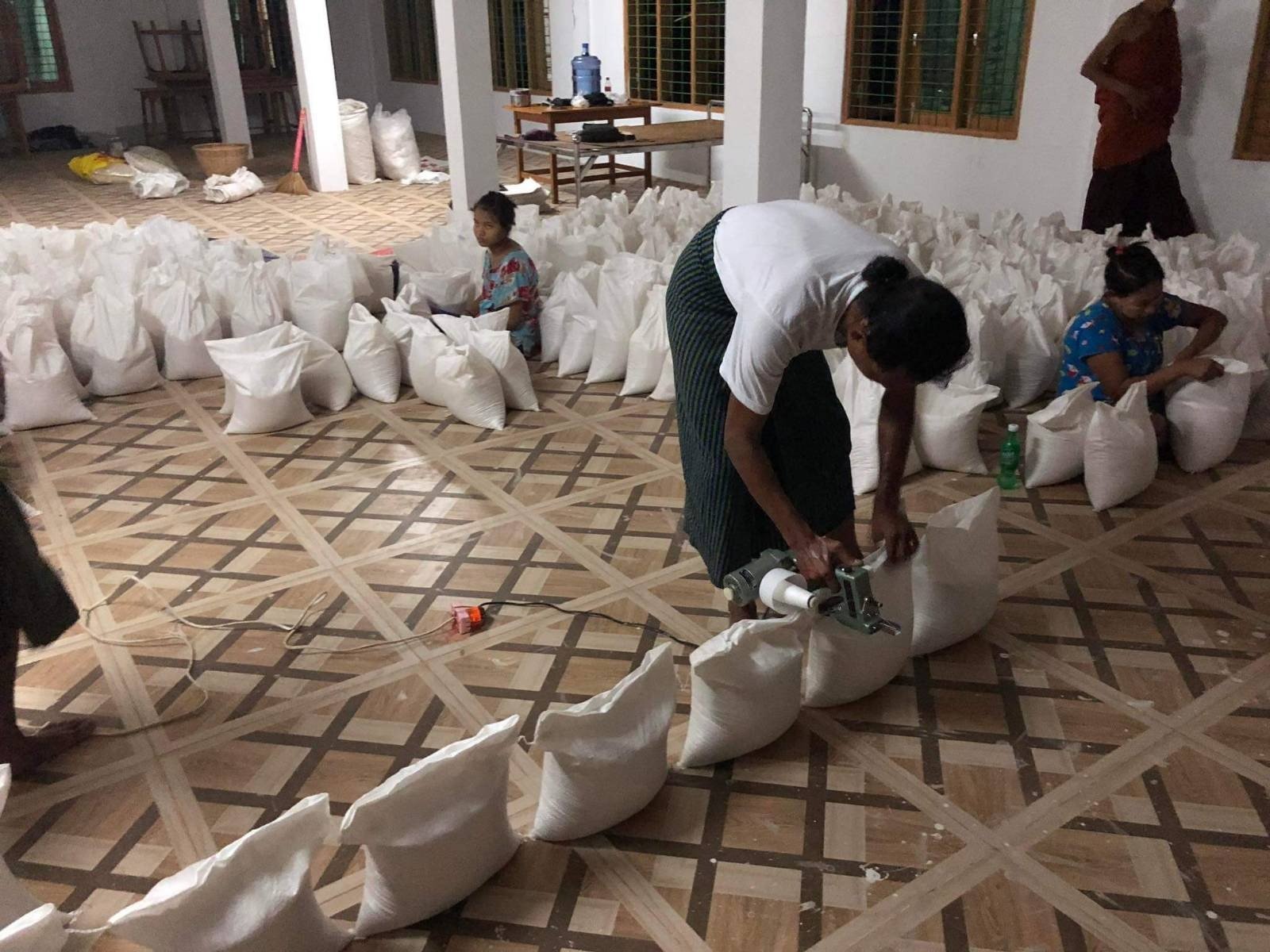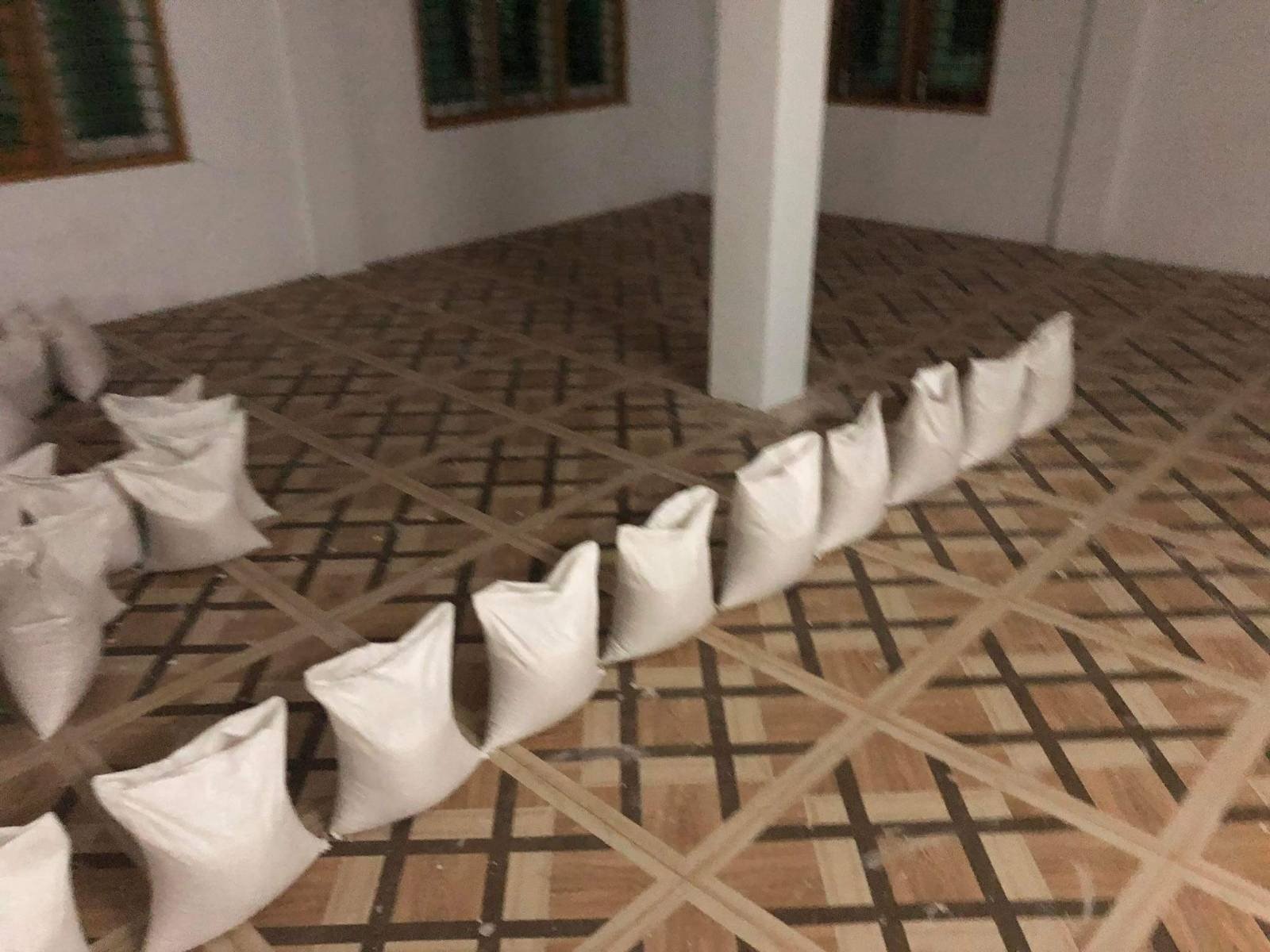Mixed Feelings in Bagan
The following reflection was written by the team leader in charge of our donation event coming up in Bagan. The essay not only contrasts the current time in Myanmar with past eras, but also the very real dangers that even humanitarian workers and donation organizers face today in trying to help their fellow humans. During this upcoming ceremony, he will be overseeing the allocation of the first round of donation in Bagan, in the form of rice offered to monks, nuns, and novices in the wider Bagan area. Because the tourist economy around the sacred Buddhist sites of Bagan has almost completely collapsed, local villagers find themselves no longer able to support monastics as before, and have requested our assistance. As one 8kg bag of rice is just $4, we appreciate any further help in reaching our goal! Please consider supporting our mission by making a contribution of any amount!
“May my one hand give my people food and clothes while may my other hand wipe the tears of my people.”
“It was an exciting, nervous and thoughtful trip to Bagan this time. But you might say to me, ‘Exciting and nervous’? Perhaps you got confused?
Well yes, it is true. It was a nervous trip this time. In the past, going to Bagan was always a short safe trip as it is just a three hour drive from where I live. One reason is in order to reach Bagan, this time we had to travel on the road which was announced by local resistance groups not to travel on.
Second, it was obviously an exciting trip that this monastic relief campaign is going to be implemented so soon in this great heartland of Myanmar! Since we just visited the temples, stupas and pagodas on the previous visits throughout my life, I've never thought of this before to help the Sanghā (monks and nuns) who are hard and in need of alms-food in this nostalgic land where the Burmese Buddhism started and sparked out, and where there were so many tourists and visitors who came here, and where so many meditators have found refuge and inspiration. However, now, there's just a single car, our own, running on the lonely road. Whenever we passed the villages on the way, the people in the tea shops or inside their houses strangely looked at us and our car. Everyone is suspicious now.
Our local friend, a Bagan-born man, made calls to us very often until we reached Bagan to ensure our safety. I recalled one thing he told me on the phone yesterday: ‘You would even see ghosts in Bagan.‘ What he meant is that it is not as crowded as in the normal days before covid and coup. When our car put its first wheel on the great land, I was having some thoughts about the history of Bagan.
Bagan faced a lot of different rulers in the form of past Bamar kings: both good and evil. Its people had seen the tides of destiny change along the course of its history. It had great rulers such as King Anawratha and King Kyan Sit, whereas it also saw the brutal, foolish, power-crazy rulers King Narathu and King Narapati Sithu. Some of these kings practiced the Dhamma from a sincerity within their heart, doing so while never deigning to claim themselves as any guardians of Buddhism. What I mean is, these kings' ethical codes can be seen as rulers who are following the Rāja Dhamma (the Rulers' Ten Ethics Code). By doing so, they really followed the Buddha's teachings. It is very famous among Myanmar people, that the wish and declaration of King Kyan Sit in his donation (which was inscribed on a stone slab) is: "May my one hand give my people food and clothes while may my other hand wipe the tears of my people."
All the time that I was in Bagan during this visit, I was continuously thinking how history would have been so different, if King Kyan Sit was not striving to fulfill the needs of his people in that way. The villagers now living in this place today continue to appreciate this past king’s moral and noble spirit. After all, what if he did not have this loving kindness and compassion towards the people? Then he would be remembered as a bad ruler, just like King Narathu.
Unlike King Kyan Sit, Narathu was notorious for his mad quest for total power, along with the the dark period at the end of his life. He so desired total power that he killed his 80-year old father along with his older brother in seeking the throne. He was brutal as well in how he forced labour throughout the kingdom, as well as in the construction of his pagoda, the famous Dhamaram Gui Temple. His behavior was so abhorrent that he was even abandoned by the Sangha Rāja (the Chief Monk of the monastic communities) of that time due to his transgressions. If only he had lived by the rules of Dhamma instead! Rather, in my opinion, such a ruler or a man shouldn't even be called a Buddhist, even though he was maternally born on a Buddhist land.
So here I was, thinking about the great attitude of King Anwaratha and King Kyan Sit. They encouraged the peaceful coexistence of diverse ethnicities and different religions of that time across the country. They were so magnanimous to allow the freedom to religions, and still today we can see different evidence from their buildings that attest to this. We can see and study how they valued and worked hard to achieve a unity of different ethnicities. We can see how they were compassionate to their people.
Suddenly my mind was jolted back to 2022. As our car stopped at a security checkpoint, my mind was brought back to the present and I kept wondering about today's military rulers of my country today: "what they do with their one hand and what with other hand?”
In the meantime, we may still rejoice that we are doing a good deed and supporting those in our Sangha who are in need at this moment. Please see the photos below which show how diligently our team has been working with your donation. We have spent the last several days parceling out the rice donation into 8 kg bags, and then stitching them up in preparation for the individual donation ceremony.”
